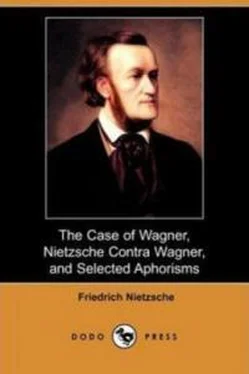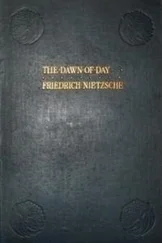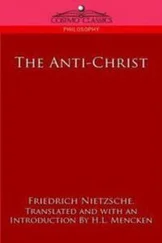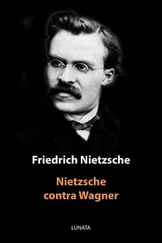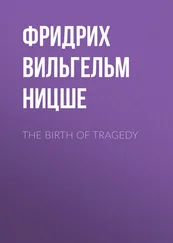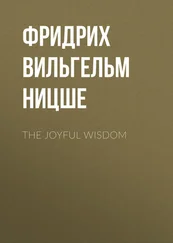62.
The most wholesome phenomenon is Brahms , in whose music there is more German blood than in that of Wagner's. With these words I would say something complimentary, but by no means wholly so.
63.
In Wagner's writings there is no greatness or peace, but presumption. Why?
64.
Wagner's Style. —The habit he acquired, from his earliest days, of having his say in the most important matters without a sufficient knowledge of them, has rendered him the obscure and incomprehensible writer that he is. In addition to this he aspired to imitating the witty newspaper article, and finally acquired that presumption which readily joins hands with carelessness "and, behold, it was very good."
65.
I am alarmed at the thought of how much pleasure I could find in Wagner's style, which is so careless as to be unworthy of such an artist.
66.
In Wagner, as in Brahms, there is a blind denial of the healthy, in his followers this denial is deliberate and conscious.
67.
Wagner's art is for those who are conscious of an essential blunder in the conduct of their lives. They feel either that they have checked a great nature by a base occupation, or squandered it through idle pursuits, a conventional marriage, etc. etc.
In this quarter the condemnation of the world is the outcome of the condemnation of the ego.
68.
Wagnerites do not wish to alter themselves in any way, they live discontentedly in insipid, conventional and brutal circumstances—only at intervals does art have to raise them as by magic above these things. Weakness of will.
69.
Wagner's art is for scholars who do not dare to become philosophers: they feel discontented with themselves and are generally in a state of obtuse stupefaction—from time to time they take a bath in the opposite conditions .
70.
I feel as if I had recovered from an illness: with a feeling of unutterable joy I think of Mozart's Requiem . I can once more enjoy simple fare.
71.
I understand Sophocles' development through and through—it was the repugnance to pomp and pageantry.
72.
I gained an insight into the injustice of idealism , by noticing that I avenged myself on Wagner for the disappointed hopes I had cherished of him.
73.
I leave my loftiest duty to the end, and that is to thank Wagner and Schopenhauer publicly, and to make them as it were take sides against themselves.
74.
I counsel everybody not to fight shy of such paths (Wagner and Schopenhauer). The wholly unphilosophic feeling of remorse, has become quite strange to me.
75.
We must strive to oppose the false after–effects of Wagner's art. If he, in order to create Parsifal, is forced to pump fresh strength from religious sources, this is not an example but a danger.
76.
I entertain the fear that the effects of Wagner's art will ultimately pour into that torrent which takes its rise on the other side of the mountains, and which knows how to flow even over mountains. [18] It should be noted that the German Catholic party is called the Ultramontane Party. The river which can thus flow over mountains is Catholicism, towards which Nietzsche thought Wagner's art to be tending.— Tr.
It should be noted that the first and second editions of these essays on Wagner appeared in pamphlet form, for which the above first preface was written.
Fisher Unwin, 1911.
T. N. Foulis, 1910.
See Richard Wagner , by Houston Stuart Chamberlain (translated by G. A. Hight), pp. 15, 16.
Constable & Co., 1911.
See Author's Preface to "The Case of Wagner" in this volume.
Senta is the heroine in the "Flying Dutchman"—Tr.
A character in "Tannhäuser."— Tr .
See "The Will to Power," vol. ii., authorised English edition.— Tr.
Note. —It was a real disaster for æsthetics when the word drama got to be translated by "action." Wagner is not the only culprit here, the whole world does the same,—even the philologists who ought to know better. What ancient drama had in view was grand pathetic scenes ,—it even excluded action (or placed it before the piece or behind_ the scenes). The word drama is of Doric origin, and according to the usage of the Dorian language it meant "event," "history,"—both words in a hieratic sense. The oldest drama represented local legends, "sacred history," upon which the foundation of the cult rested (—thus it was not "action," but fatality. δρᾶν in Doric has nothing to do with action).
Hegel and his school wrote notoriously obscure German.— Tr.
Was Wagner a German at all? There are reasons enough for putting this question. It is difficult to find a single German trait in his character. Great learner that he was, he naturally imitated a great deal that was German—but that is all. His very soul contradicts everything which hitherto has been regarded as German, not to mention German musicians!—His father was an actor of the name of Geyer…. That which has been popularised hitherto as "Wagner's life" is fable convenue if not something worse. I confess my doubts on any point which is vouched for by Wagner alone. He was not proud enough to be able to suffer the truth about himself. Nobody had less pride than he. Like Victor Hugo he remained true to himself even in his biography,—he remained an actor.
This undoubtedly refers to Nietzsche's only disciple and friend, Peter Gast— Tr.
My "Genealogy of Morals" contains the best exposition of the antithesis " noble morality " and " Christian morality "; a more decisive turning point in the history of religious and moral science does not perhaps exist. This book, which is a touchstone by which I can discover who are my peers, rejoices in being accessible only to the most elevated and most severe minds: the others have not the ears to hear me. One must have one's passion in things, wherein no one has passion nowadays.
An allusion to Schiller's poem: "Das verschleierte Bild zu Sais."— Tr.
What Schiller said of Goethe.— Tr.
See note on page 37.
It should be noted that the German Catholic party is called the Ultramontane Party. The river which can thus flow over mountains is Catholicism, towards which Nietzsche thought Wagner's art to be tending.— Tr.
